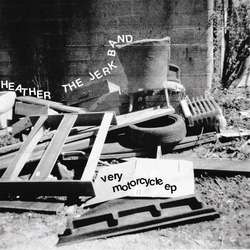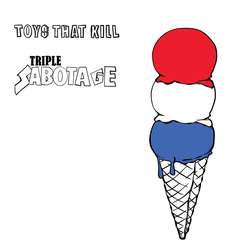Neurot Recordings has lately been putting out releases from some great and surprisingly diverse bands such as U.S. Christmas, A Storm of Light, and Grey Daturas. Prepare to chalk up another name on that list: Guapo.
Guapo occupies an interesting place on the Neurot roster as the band has a spacey yet focused sound based in progressive rock, avant-garde jazz, and the psychedelic world. '70s Miles Davis is cited as a major influence on Guapo and I definitely hear certain elements that remind a great deal of Bitches Brew (carefully-orchestrated dissonance, sparse production, and meandering keyboards) but there are other features that don't (an obvious lack of horns and and un-jazzy time signatures). Elixirs isn't quite a jazz album in the first place. I'd say it is more of a prog album with jazz and psychedelic trappings. Elixirs isn't as bass-heavy and direct as the band's previous efforts, Five Suns and Black Oni, but makes up for it with sheer unpredictability.
Some of the tracks have an exotic Old World feel to them because of extensive use of the autoharp, other stringed instruments more common in folk than in rock, and unusual percussion (see "Jeweled Turtle" and "The Planks"), while others are more heavily steeped in atonal jazz (see "Arthur, Elsie and Frances" and "Twisted Stems: The Selenotrope") and yet other moments display an unsettling and noisy minimalism that would not sound out-of-place on a This Heat album (see "Twisted Stem: The Heliotrope"). The sixth and final track, "King Lindorm," is a standout song because it melds all of these sounds into a piece of music that truly transports the mind to somewhere distant. A dramatic and dissonant set of chords on the piano transforms through a tempest of dark ambiance into a denser, jazzier, more atmospheric progression built on top of tension-building drum rolls.
Guapo has a very spacious, expansive sound that is laid back yet builds tension. The songs on Elixirs take some rather unexpected turns that seem to reach across decades of musical history to form something both chilled-out and mind-bending. In fact, the twists, turns, and eccentricities of Elixirs may just be what the doctor ordered to break up the monotony of the everyday (both in music and in life). The only thing this album is really missing is more of those dense, almost out-of-control psychedelic jams. The album's only real weakness is its restraint... a good psychedelic album needs an occasional outburst of wall-like, bonehead cacophony to counterbalance all of the subtlety. But, all in all, I think Miles Davis would be proud.



